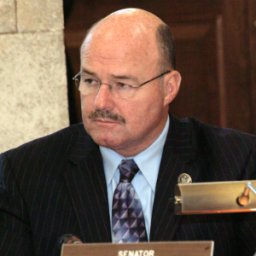
Legislature Sends Two Bills to Governor for Approval
TRENTON – The Senate today approved three bills that would help combat the state’s heroin and prescription abuse efforts. The bills are part of a bipartisan 21 bill package to educate, prevent and treat the state’s growing opiate addiction problem, which has seen an explosion of abuse and deaths throughout the state over the past few years. According to the Attorney General’s office there has been a 160 percent increase in heroin-related deaths from 2010 to 2013. Two of the bills approved by the Senate today received final legislative approval and were sent to the Governor for consideration.
The Senate approved S-2369, sponsored by Senator Jim Whelan and Senate Republican Leader Tom Kean, and S-2370, sponsored by Senator Whelan and Senator Joe Kyrillos. Both bills would assist the public in dispensing of unused or expired prescription medications.
“For young people looking for a high, they often only have to turn to their medicine cabinets at home, filled with highly addictive prescribed pain medication that are unwittingly left there by their parents,” said Senator Whelan, D-Atlantic. “With a coordinated educational effort and increased drop-off locations, we can ensure that parents know how best to remove these harmful substances from their house and get them out of the reach of their kids.”
S-2369 would codify and expand the “Project Medicine Drop” program which provides for secure collection and safe disposal of unused and expired prescription drugs and household medications. The bill would require that the Department of Consumer Affairs list on their website statewide medicine drop receptacle locations. The bill was approved by the Senate with a vote of 35-0 and now heads to the Governor’s desk.
“The expansion of anonymous drug drops to any law enforcement agency in the state can prevent drug abuse, addiction and serious health effects, especially among teenagers,” said Senator Kean, R-Union, Morris, Somerset. “We must do everything possible to raise prevention awareness and limit the chances that people, especially our most vulnerable youths, are exposed to or have easy access to dangerous substances.”
S-2370 would require pharmacists, doctors and advanced practice nurses who dispense prescription medication to alert their patients of safe and proper disposal methods of excess medications, including making the patient aware of the “Project Medicine Drop” program. The bill was approved by the Senate with a vote of 35-0 and now heads to the Governor’s desk.
“Prevention and treatment are essential to addressing drug abuse in our state, and a big part of that is public awareness,” said Senator Joe Kyrillos, R-Monmouth. “Our bipartisan efforts will raise awareness on many fronts, including the improper disposal of unused prescription medications which is a direct threat to human health and a direct contributor to drug abuse, particularly among teenagers. Pharmacists and prescribers will be accountable for educating patients about how to properly dispose of unused drugs, specifically through an expanding state drop-off program. We are also going to improve, update and make safer programs at alcohol and drug abuse treatment centers by adding accountability and transparency to those providing such vital services.”
The third bill approved by the Senate today, S-2372, sponsored by Senator Fred H. Madden and Senator Steve Oroho, would authorize the Attorney General to coordinate and direct a statewide effort of law enforcement agencies along with the Division of Consumer Affairs and professional licensing boards to identify, investigate and prosecute illegal sources and distribution of prescription opioid drugs. Under the bill, the Attorney General could provide training to law enforcement officials and recommend training for medical professionals to detect prescription drug diversion and abuse. The bill would also empower the Attorney General to enhance oversight of professional licensing boards relating to the administration and dispensing of controlled dangerous substances. The bill was approved by the Senate with a vote of 36-0. It now heads to the General Assembly for consideration.
“As more and more young adults turn to prescription drugs to get high, they look for doctors who overly prescribe addictive medications such as Vicodin or OxyContin, leaving a trail that can be unveiled by a law enforcement effort,” said Senator Madden, D-Gloucester and Camden. “In order to stop these bad doctors from abetting abusers, we need to take an all hands on deck approach, providing for strong coordination among the AG’s office, law enforcement and medical professionals. The Attorney General should have the resources available to him to effectively bring down pill mills.”
“Opioid abuse and trafficking is an issue that crosses the boundaries of individual communities, making it paramount that law enforcement work to address this plague from a regional perspective,” said Senator Steven Oroho, R-Sussex, Warren, Morris. “Through training and increased collaboration between law enforcement and medical professionals this legislation brings a needed collective approach to identifying and stopping the spread of these drugs at the source.”
Three additional measures from the bill package were signed into law today. The three laws are:
- S-2378, sponsored by Senator Joseph F. Vitale and Senator Robert Singer, will expand the Overdose Prevention Act to allow medical professionals to provide a standing order for Naloxone – an overdose antidote – to other professionals who work at syringe exchange programs, community-based programs, substance abuse therapy programs or other organizations where they come into contact with people who are susceptible to an opioid overdose.
- S-2373, sponsored by Senator Vitale and Senator Dawn Marie Addiego, will require the Division of Mental Health and Addiction Services to annually prepare a Substance Use Treatment Provider Performance Report including the patients’ success of remaining abstinent from drugs and alcohol after completion of the program, employment figures, education and job training admissions and housing information.
- S-2380, sponsored by Senator Vitale and Senator Raymond J. Lesniak, will require coordination between the Commissioners of Human Services and Corrections to ensure that state-owned correctional facility inmates are receiving mental health and substance abuse disorder services by licensed service providers.




